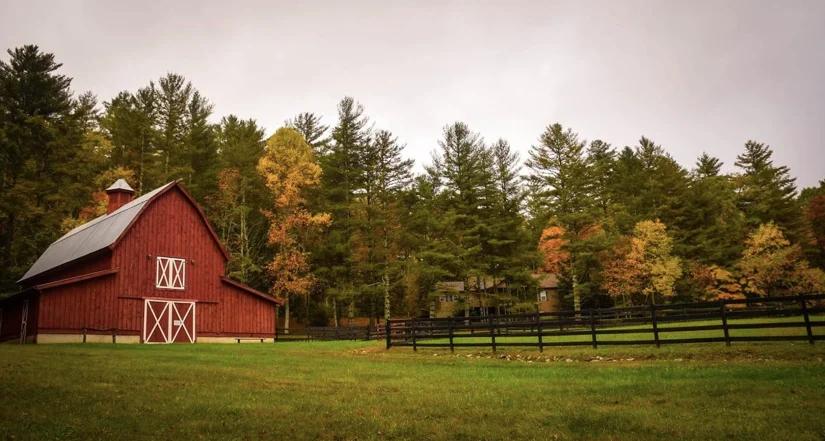Do Your Research When Buying Rural Acreages


You are finally ready to purchase land for your dream home—a rural acreage. You have grand plans for a huge garden, some livestock, and maybe eventually going off the grid. But how do you get started?
Plan Your Finances
First, it is important to know what type of property you want to purchase. Do you want space and facilities for raising livestock or just a place with large yard? Those factors will affect the price and size of down payment you will need and what type of financing you should pursue.
In the past few years, the agricultural real estate market has soared. Price escalations like this may require you to have additional funds available or be prepared to have a second in-town job to subsidize your rural lifestyle. It’s a good idea to get a pre-approval from your lender prior to starting to look at rural acreages so you have a firm idea of your price range.
Talk to your local U.S. Department of Agriculture Farm Service Agency (FSA) office. They administer programs that could help with financing and conservation programs on your new rural acreage.
Work with a Lender Who Understands Rural Financing
If you are fortunate enough to be able to buy real estate with cash, then you do not need to worry about financing. However, if you do need to pursue financing options, be sure to do your research and choose a lender that understands rural properties.
Find a Realtor to Work for You
You may want to consider hiring a buyer’s agent so you know they’re working for you to find a rural property and not just the seller. A realtor will help set up the closing and make sure that both buyer and seller meet the demands of the written contract.
Consider Other Methods of Finding Properties
While a realtor can connect you with properties that may suddenly become available, you can also look to other tools to find rural acreages for sale. Properties being sold at auction are typically listed in local newspapers, and the internet offers many tools that can help identify rural acreages for sale in your desired area.
Understand Your Location
The location of the acreage you purchase will have many ramifications. For example, properties that are fairly close to a town are often more expensive than those further away. Other variables to consider include
- Road quality and ease of access to the property
- Soil productivity
- Utility access for electricity and water
- Connectivity for satellite television and internet access
- School district and distance to the local school
- Availability of trash pickup
- Potential for commercial development nearby
These are all important things to understand prior to buying a rural acreage.
TIPS FOR ENSURING SAFETY ON YOUR RURAL PROPERTY
Be Sure of What’s Included
You want your purchase contract to be explicit about what items are included in the purchase of your acreage. Will the seller leave any gates, livestock panels, portable sheds, fence posts, feeders, or other equipment that are on the property? Are there any farm or hunting leases on the property that you need to be aware of? Be sure to ask your realtor about all of these items when considering a rural acreage.
Know Your Boundaries
It may be important to also consider having a survey done to verify the number of acres you are buying. The county assessor can provide information on previous tax records so you can know how many acres are being taxed. If this number is significantly different from what the owner is telling you, a survey will clear up any discrepancies.
Consider Zoning Restrictions
Some counties today have rural zoning laws that affect what you can and cannot do on your land. Contact the county courthouse where the property is located to learn what zoning requirements apply to it. Your realtor can also help with this. Understanding the local zoning rules will help you determine if the property is a good fit for your needs.
Investigate Tax Advantages
Many states offer tax relief on agricultural properties. If your rural acreage will be used for agricultural purposes, check with the local tax assessor to determine if a property qualifies for tax credits, special appraisals, or other exemptions. If it does, find out what you need to do to keep those benefits in effect.
Watch Out for Hidden Costs
Buying a rural acreage can involve different costs than buying a property in town. Not all insurance companies will cover rural properties, and you may need additional insurance for any outbuildings, so be sure to shop around in the local area for a policy that fits your needs and property.
You may also need to budget for gravel for the driveway, a larger mower, wells and septic systems, a utility vehicle, or storage buildings. Of course, equipment and buildings also come with additional maintenance costs to keep them up.
Buying a rural acreage can be rewarding, but doing your homework can save you a lot of time and trouble. For more information on rural living topics, subscribe to AcreageLife today.
Tags:Garden & Landscape

Acreage Life is part of the Catalyst Communications Network publication family.
















